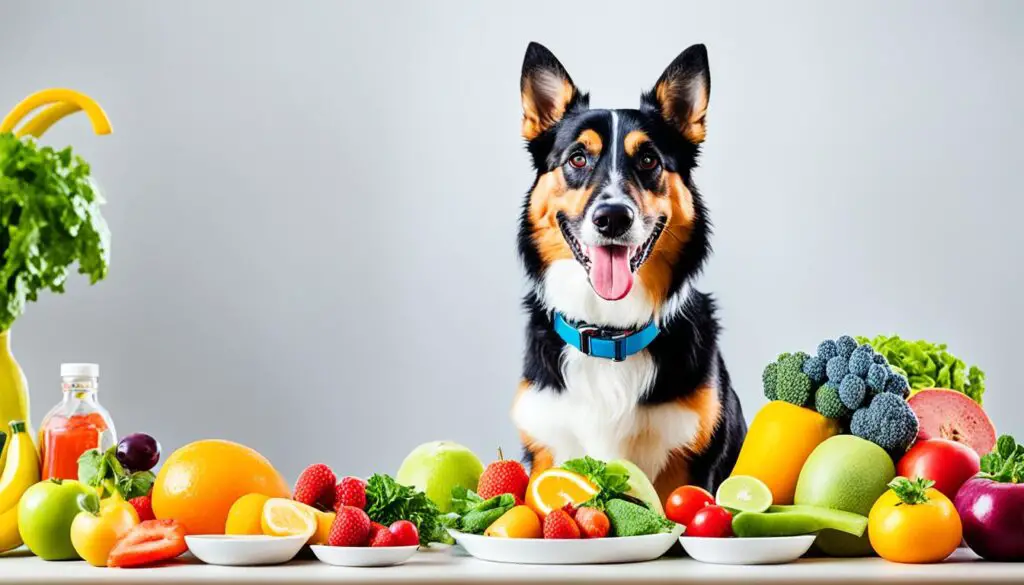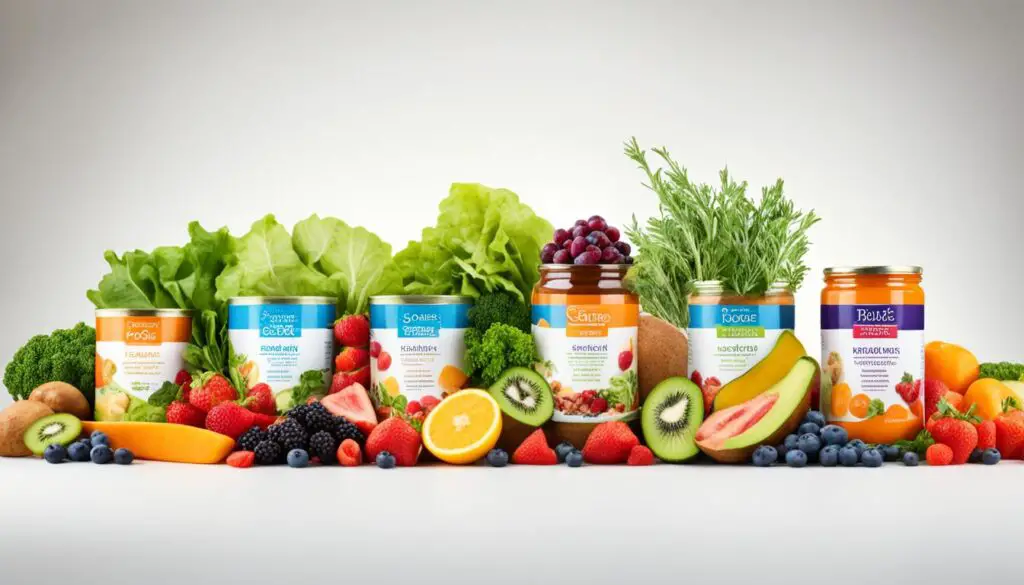Proper nutrition is key to keeping pets healthy and strong. As pet owners, we know how important it is to feed our pets well. This article will explore the details of what makes a good diet for pets. It will help you understand how to choose the best food for your pet.
Key Takeaways:
- Nutritional wellness is vital for promoting pet health and longevity.
- A balanced mix of proteins, carbohydrates, fats, vitamins, and minerals is essential for a pet’s well-being.
- The nutritional needs of pets differ depending on their age, breed, size, and how active they are.
- Speaking with a veterinarian can help you figure out the right diet for your pet.
- It’s important to watch your pet’s health and behavior to make sure their diet is working well for them.
Key Elements of a Wellness Diet for Pets
A wellness diet is vital for pets’ health and energy. It gives them all the necessary nutrients like proteins, carbs, fats, vitamins, and minerals. This mix helps pets feel their best and live fully.
A good diet uses high-quality ingredients. Foods should be easy to digest and free from artificial stuff. A choice of premium ingredients makes meals rich in nutrition for your pet.
What pets eat depends on their age, health, and unique features. Young animals need food that fuels their growth, which is often high in calories and proteins. Older pets might benefit from a diet that helps them stay at a healthy weight and cares for their aging bodies.
Knowing your pet’s specific needs is key in choosing the right nutrients. Consider their age, breed, and health when picking a diet. Talking to a vet for advice on meal plans is a smart move.
There are many diet choices for pets, like commercial foods, homemade meals, or special diets. Before selecting, learn about each type’s pros and cons. What you choose impacts your pet’s health and well-being.
Choosing a good diet keeps your pet healthy and happy.
Choosing the Right Wellness Diet
For a wellness diet, include a variety of nutrient-rich foods. Choose proteins from lean meat, fish, or plant sources for vegetarians. Carbs can come from whole grains, fruits, and veggies. Healthy fats, like fish oil, are important too.
Homemade diets offer control and customization but need to be balanced. Commercial foods are tested and meet strict standards. Picking a quality brand makes feeding your pet easy and safe.
Prescription diets are made by vets and help with specific health issues. These can target problems like allergies or kidney disease. If your pet has unique needs, ask your vet about a specialized diet.
Finding the best diet means paying attention to your pet’s reactions. Watch for changes in health or mood. Regular vet check-ups and diet adjustments are part of keeping your pet well-nourished and happy.
Conclusion: Nourishing Your Pet for a Healthy Life
Choosing the best food for your pet is essential for their health. Know what a wellness diet contains. Think about your pet’s unique needs and ask a vet for advice. A good diet gives your pet proteins, carbs, fats, vitamins, and minerals they need.
A balanced diet shows in your pet’s skin, weight, poop, and energy. Check your pet’s health and behavior often. Changes might mean you need to adjust their diet. Focusing on their nutrition helps your pet live well and stay happy.
Every pet is different, so adjust their diet to fit their needs. The right food is a powerful tool for their health. Give them a balanced diet, and they’ll do great!
FAQ
Why is proper nutrition important for pets?
Giving our pets the right food is key to their health. Good food keeps them strong and living longer.
What are the key elements of a wellness diet for pets?
A good pet diet has proteins, carbs, fats, vitamins, and minerals. It should be made from good ingredients and free of bad stuff like artificial flavors and fillers.
How do you determine the nutritional needs of a pet?
How much and what kind of food a pet needs depends on their age, size, and how active they are. A vet can help figure out what’s best.
What are the options for pet wellness diets?
You can choose from store-bought pet food, homemade meals, raw food, or special diets for health issues. Each diet has pros and cons.
What are the indicators of a balanced diet for pets?
Knowing your pet is on a good diet shows in their shiny coat, right weight, and happy behavior.
How can I monitor my pet’s health and behavior related to their diet?
Keep an eye on how your pet feels and acts. Changes could mean their diet needs changing. Always talk to your vet if you’re worried.


